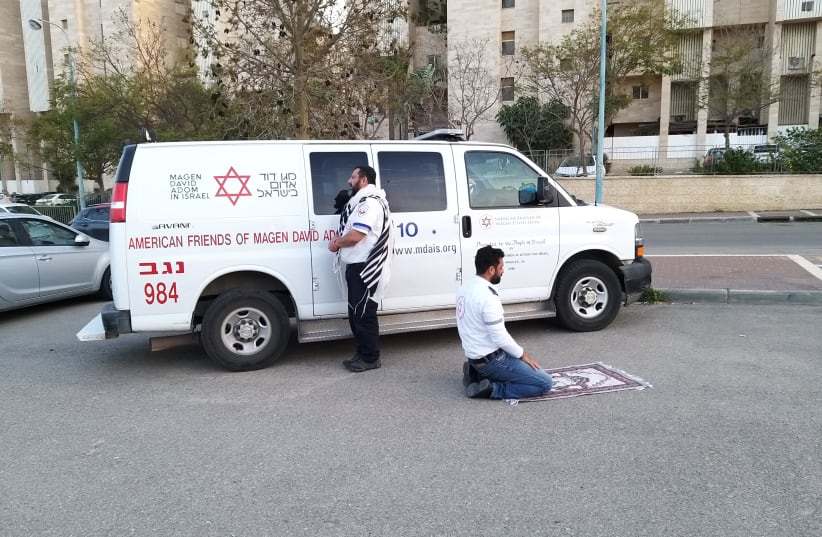Rabbi Gershon Edelstein, the second-most senior, non-hassidic ultra-Orthodox rabbi in the world, has urged caution over new government regulations permitting communal prayer, saying that one can only participate in such services if it is certain correct distancing can be maintained from other worshipers.
On Sunday, the government published its updated coronavirus restrictions stating that communal prayer is now allowed for up to 19 people in an outdoor space with a distance of two-meters between worshippers and up to 500 meters from places of work or residences.
In a letter published in three ultra-Orthodox newspapers, Edelstein wrote that there was “the most severe stringencies on every single person to abide by and observe the rules of distancing and the required caution in accordance with the instructions of the doctors, and in no way to hold prayer services if these instructions are not upheld in their entirety.”
The rabbi continued that everyone participating in the prayer service should first check if it was possible to fully adhere to the two meter distancing directive.
“[For] all of this there is a suspicion of a danger to life, and anyone who transgresses this harms himself and others, God forbid,” Edelstein wrote.
If it is not possible to fulfil the government directives the rabbi said, it was preferable to pray alone at home.
“Anyone who is stringent and prays at home until these things become clearer is behaving appropriately and there is no concern [about his actions],” the rabbi said.
The fact that Edelstein’s letter was published not only in Yated Neeman, the daily newspaper of his own non-hassidic, ultra-Orthodox community but in Hamodia and Hamevaser, which are connected to the hassidic community, was an unusual development demonstrating an acceptance of the rabbis rulings within the hassidic world as well.
The ultra-Orthodox community and its leadership had been reluctant to accept the restrictions on religious life posed by the coronavirus social-distancing orders, but has lately accepted them due to skyrocketing infections in their sector.
While Edelstein urged caution, Rabbi Yitzchak Yehuda Yeruslavski, a senior Chabad rabbi and secretary of the Chabad rabbinical court, ruled that prayer in public at present is forbidden by the Torah due to the danger to life posed by the Covid-19 coronavirus.
“It is totally forbidden to pray in a public space, and people should continue to pray on balconies as they have done until now,” said Yeruslavski in reference to the practice that has sprung up in ultra-Orthodox neighborhoods whereby individuals stand separately on their own balconies in close enough proximity to others on their balconies to hold a prayer service with a minyan, quorum, of ten men.
Anyone without a balcony should pray alone in their homes, the rabbi ruled.
